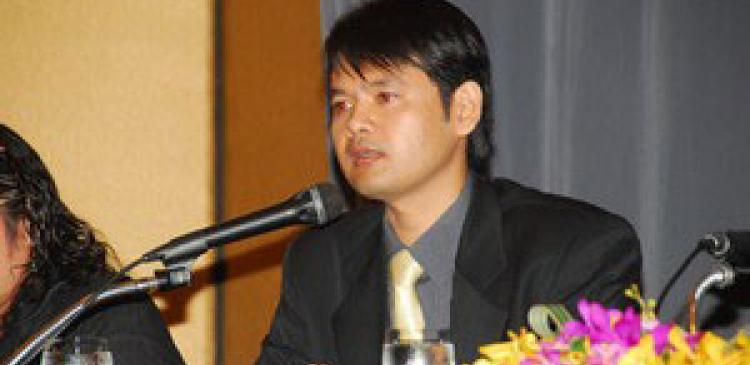National Science and Technology Development Agency (NSTDA) and Foundation for the Promotion of Science and Technology under the Patronage of H.M. the King have awarded the 2009 NSTDA New Generation Technologist to Asst. Prof. Jesada Wannasin, a lecturer from Mining and Materials Department, Faculty of Engineering, PSU whose semi-solid metal forming technology can be used in producing light-weight parts and anti-ballistic attires cheaper than those imported. This has produced a new body of knowledge and competent personnel for the industrial arena.
The awards are aimed to honor all generations of Thai technologists from the veterans to those aged not more than 35 years whose works are of benefits to the nation industrially and socially. It is the great pride of PSU with its quest to become a research university, ready to produce high quality researchers.
Semi-solid metal forming technology has been developed to serve the needs of the aluminum parts industry which grows as a result of the vehicles assembly and electronic industries. Aluminum parts are usually produced using die casting method so larger quantity can be made. However, this method makes the parts porous, meaning low mechanic quality and impossible to be welded or coated. Besides, molds are short-lived, making the cost high. This problem has been tackled by importing complicated and difficult to control semi-solid metal forming technology. The machine costs 10-20 million baht each which is not affordable by medium and small sized factories.
The new semi-solid metal forming technology is called Gas Induced Semi-Solid (GISS) which can efficiently produce semi-solid metal by releasing very fine gas bubbles through porous graphite bars while partly solidifying. This enables convenient use, easy control of variables and high quality semi-solid metal production. The prototype using GISS has been developed to produce semi-solid metals effectively which are a lot cheaper than imported machines.
This invention will help increase Thai metal casting industry potential in the production, making it more competitive with other countries. The industries to be benefited are vehicle metal parts industries, electronic parts, parts for agricultural machinery, parts in construction structures and decoration and parts for works requiring high mechanic quality, low production cost and the quality of being light-weighted. This can also be used for military needs such as anti-ballistic armors, parts of weapons and instruments needing to be light-weighted.





